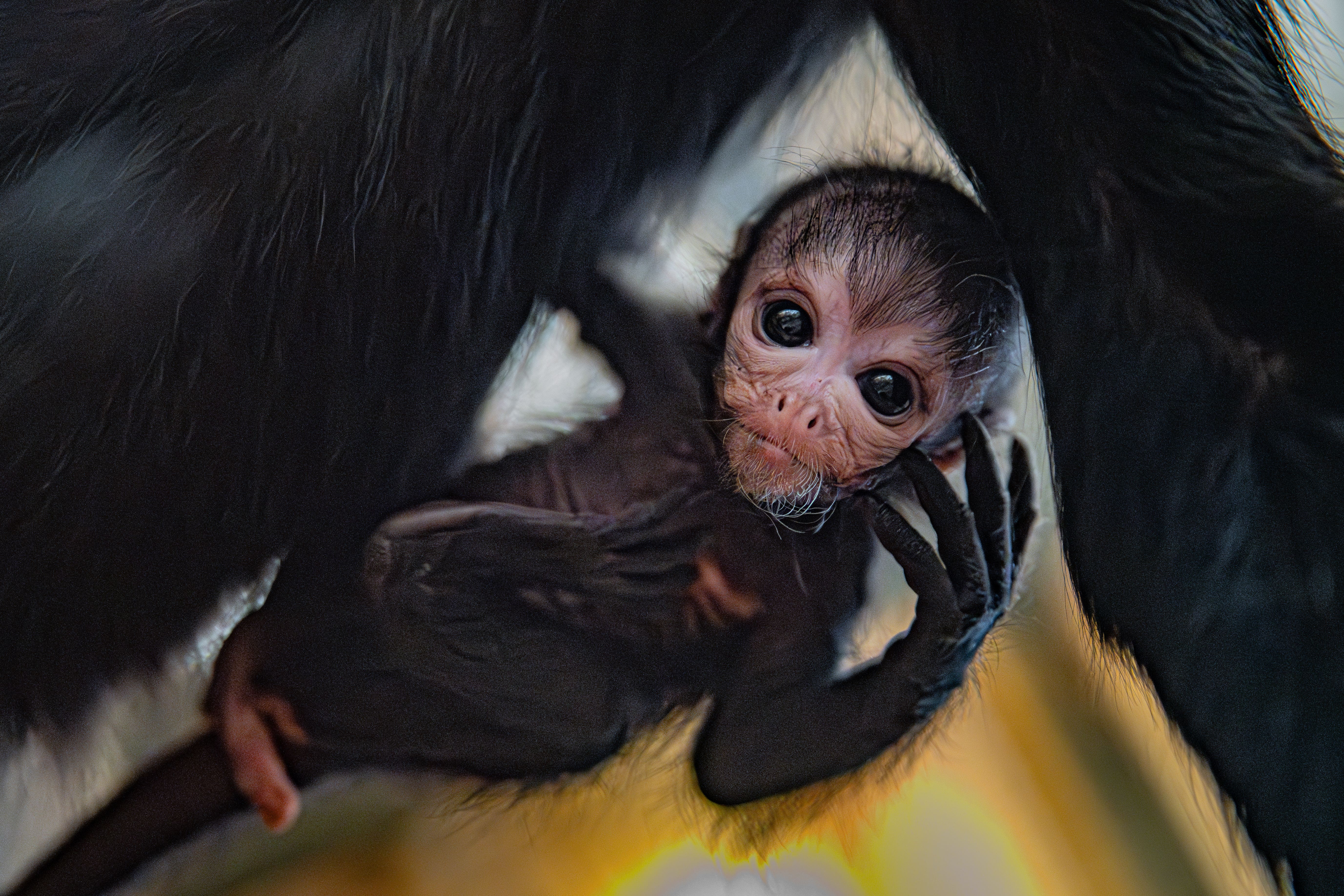Chester Zoo visitors treated to glimpse of rare baby spider monkey
The monkey, called Olive, was born on December 1 2023.

A rare baby monkey has been spotted by eagle-eyed visitors at Chester Zoo.
The female baby Colombian black-headed spider monkey called Olive was born to mother Kiara on December 1 2023.
Zoo attendees have been treated to a glimpse of the baby monkey being cradled by her caring mother.
Mark Brayshaw, head of mammals at the conservation zoo, said it has been “fantastic” to see Kiara looking after her baby.
“Olive will cling to mum’s belly for a few months, before gaining enough confidence to start branching off on her own and start exploring independently – which will be great to see,” he added.
The International Union for the Conservation of Nature (IUCN) has listed the primate, which is found mainly in Colombia and Panama, as vulnerable, which means there is a high risk it may become extinct in the wild.
Primatologists at Chester Zoo have played a leading role in coordinating efforts between European zoos to boost numbers.
Mr Brayshaw said: “In welcoming new life into the conservation breeding programme, we’re contributing to global efforts to secure a future for these highly endangered primates.
“In tandem with offering education, carrying out scientific research and improving public awareness, we hope to play our part in reversing their decline and ensuring the species thrives long into the future.”
Bookmark popover
Removed from bookmarks